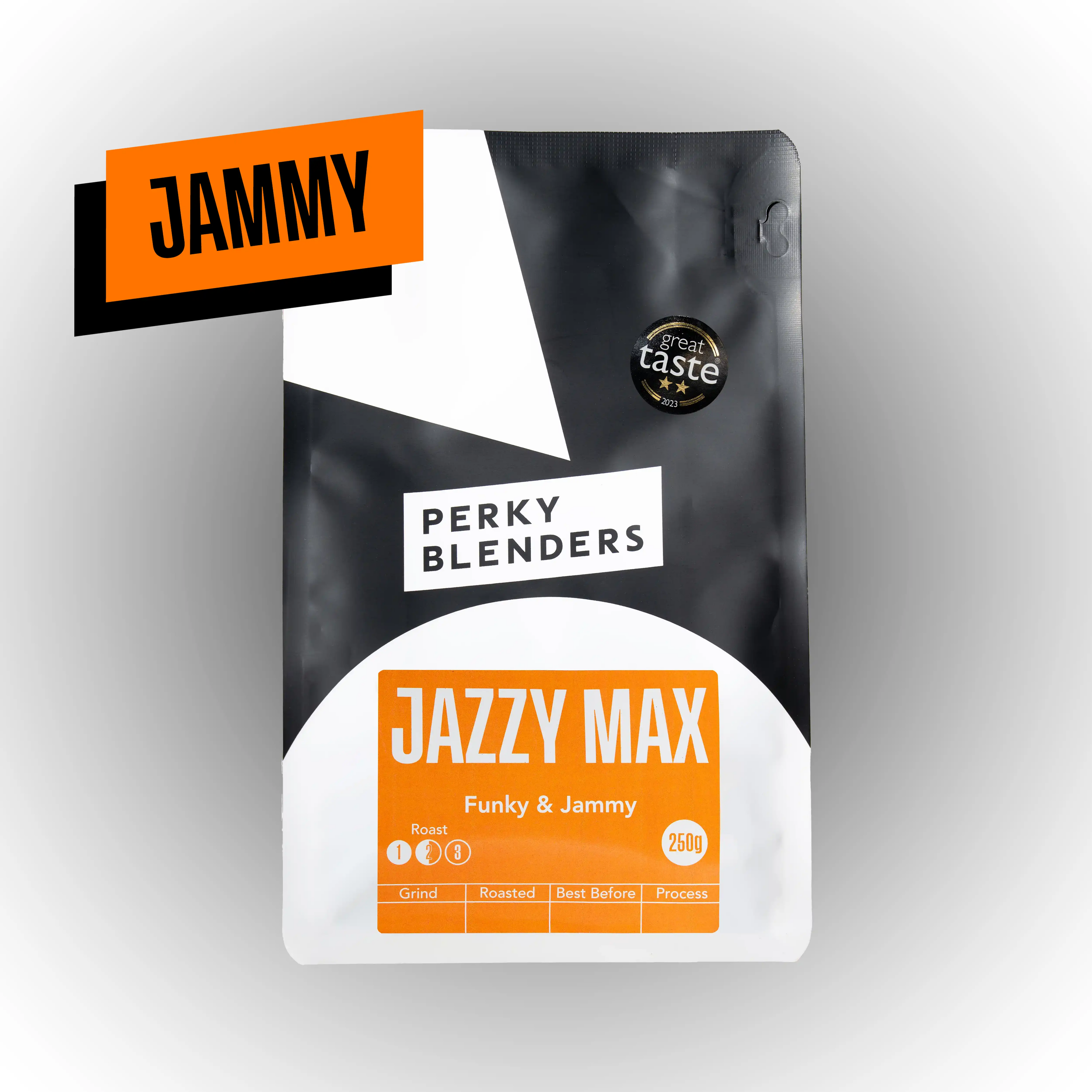STAY IN TOUCH WITH US
Sign up for a dose of Perky Love. Great coffee chat, exclusive offers, and all around good things delivered straight to your inbox.

Hints of: Milk Chocolate, Blueberry, Strawberry Lemonade
Grown in:
Best for: Filter & Espresso
Pickup available at Perky Blenders Roasters
Usually ready in 24 hours
Our resident natural blend. Perfect for those who like their daily cup jam-packed with ripe fruit flavours. Featuring a seasonal selection of the most unique and unusual dry-processed coffees from our favourite producers around the world, Jazzy Max works well for filter brewing and for those who like a very juicy espresso.
Jazzy Max Blend currently features coffees produced in Brazil and Ethiopia, creating a blend that showcases the best of each origin. We’re talking dark chocolate, blueberry, strawberry lemonade, and vanilla tasting notes.
The first component is sourced from Brazil. The Bossa Nova regional blend comes from Cerrado and Sul de Minas. Both regions are well known for their coffee production. Cerrado is a vast tropical savannah in Brazil’s centre that spans almost 2 million square kilometres. It is recognised as the most biodiverse prairie in the world, with approximately 10,000 different plant species. Today, Cerrado is one of Brazil’s most productive coffee regions for consistently high-quality coffee. Sul de Minas is the largest coffee-growing region in Brazil; about 30% of the country’s coffee is grown here.
This lot of Mundo Novo and Catuai cultivars was processed using the traditional natural method and boasts nutty notes wrapped in a chocolaty texture. So you can easily taste hazelnuts and macadamia nuts, milk chocolate, with subtle hints of citruses.
As the second component, we chose a lot produced in the Yirgacheffe region in the southern part of Ethiopia.
Halo Beriti is a coffee-producing community and washing station in Gedeb, Gedeo Zone, Ethiopia - part of the broader Yirgacheffe coffee region situated at an altitude of approximately 1,800 to 2,200 metres above sea level.
The soil there is predominantly fertile, with rich volcanic deposits providing nutrients vital for coffee cultivation. This combination of altitude, rainfall, and soil quality creates optimal conditions for producing high-quality Arabica coffee beans.
Sourced through Ephtah Specialty Coffee, an Ethiopian exporter focused on producing high-quality specialty coffee through ethical and sustainable practices.
Founded and led by Wubit Bekele, a Q-graded cupper with extensive industry experience, the company’s mission is to deliver exceptional coffee while improving the lives of local communities. Ephtah places a strong emphasis on empowering women in the coffee sector by providing training, access to finance, and leadership opportunities.
The process of harvesting coffee cherries is typically done by hand, with skilled workers selectively picking only the ripest cherries.
These heirloom varieties are processed by a natural (or dry) method: coffee is dried in the whole cherry under the sun, allowing the beans to absorb the fruit’s natural sugars and flavours. Farmers handpick ripe cherries and spread them on raised beds for several weeks before sorting.
The result is a cup bursting with sweet, fruity, and floral notes - often blueberry, strawberry, or mango - with bright acidity and a smooth body.
This Brazil-Ethiopia blend of Jazzy Max is fruity and vibrant, bursting with notes of forest berry such as blueberry and strawberry. Its juicy body evokes tropical flavours like mango and lemon, complemented by the mild sweetness of milk chocolate and vanilla.
Enjoy!